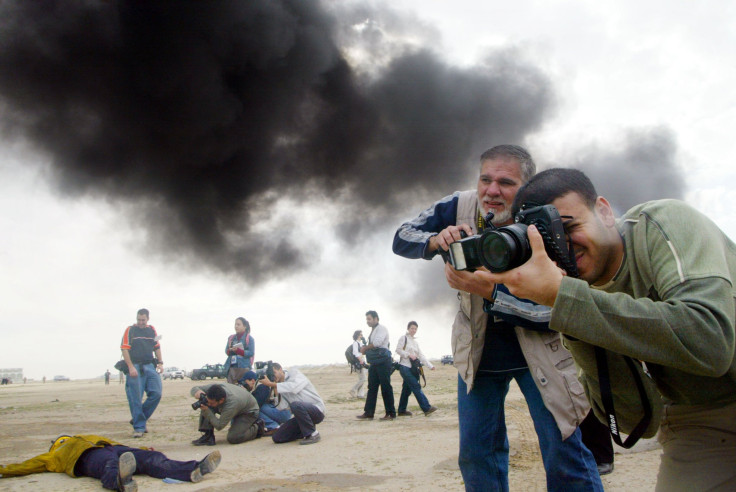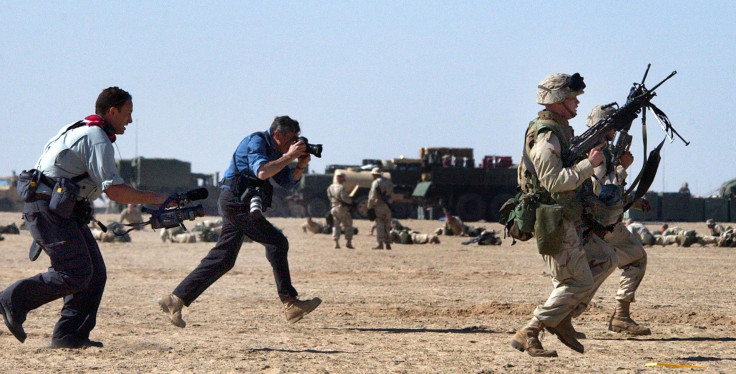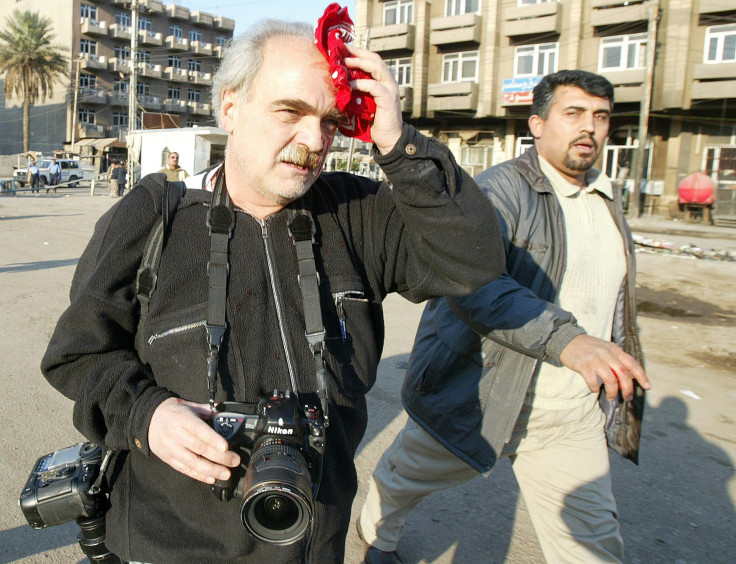Journalists Are Defying Death Every Day: What Makes Them Do It?

Journalism can be a powerful job, but it's also perilous.
The latest case of Swedish journalist Kim Wall, who never returned after going to interview Danish inventor Peter Madsen, on his submarine, on Aug. 10, shocked the world. More than 10 days later, the headless corpse of Wall washed up on the shores of Copenhagen, Denmark, and Madsen was charged with the manslaughter of the journalist.
“During the horrendous days since Kim disappeared, we have had countless evidence of how loved and appreciated she was, as a human and a friend as well as a professional journalist,” a translated Facebook Post by Wall’s mother, Ingrid Wall, read. “From all corners of the world comes evidence of Kim's ability to be a person who makes a difference.”
According to the Committee to Protect Journalists, 48 reporters were killed last year in various parts of the world, while on assignments. Among them, 36 were covering war and 18 were political journalists (some of them belonged to both genres).
More journalists were killed in crossfire or combat (26) than those murdered (18). The top five countries which proved to be the most perilous for journalists and media workers in 2016 were the ones that have been torn by ongoing militant uprisings, political unrest, and other kinds of violence: Syria, Yemen, Iraq, Afghanistan and Somalia.
Journalists who have taken on dangerous assignments, have been kidnapped, tortured and threatened, often by people who stood to be exposed due to the former’s efforts.

One such example is Lydia Cacho from Mexico, who has been described by Amnesty International as "perhaps Mexico’s most famous investigative journalist and women’s rights advocate." Even though she has faced religious harassment, torture and death threats, she has continued to report.
Following the 2005 publication of “Los demonios del Edén,” an exposé on the existence of a Mexican child pornography ring in the popular resort of Cancún, Mexico, Cacho was arrested by Puebla state officials on Dec. 16, in the same year, and interrogated for 20 hours inside a van that kept driving around the city. After being threatened physically, she was taken to the police station where she was charged with defamation and calumny, the Dangerous Woman Project reported.
Later it was revealed that the person who ordered her arrest was former Governor of Puebla Mario Marín.
That was not Cacho's only encounter with powerful individuals. On July 29, 2012, Cacho received a call on a personal number that she only used for emergencies. An unknown male voice on the other end told her: “We have already warned you, b----, don’t mess with us. It is clear you didn’t learn with the small trip you were given. What is coming next for you will be in pieces, that is how we will send you home.”
Even though she admitted in an interview with the Guardian that she does not “scare easily,” she was forced to flee Mexico for the fifth time that year, following the terrifying phone call. Over the years, Cacho has been offered asylum in several countries across the world, including Great Britain.
“One day three years ago, I sat down with all my team and said, ‘Let’s make a safety plan. In case I get murdered, this is what you will do.’ Because that’s what you have to do — we are in a high-risk job, and if you don’t accept that, you could be killed and nothing would be done… I know I’m messing with organized crime: I’m not a kid anymore,” Cacho told Mother Jones in May 2007.
Robert Kvile, ambassador to Norway's delegation to The Organization for Security and Co-operation in Europe in Vienna addressed the Permanent Council on Nov. 5, 2015, which also happened to be the International Day to End Impunity for Crimes against Journalists. “There is no excuse for allowing attacks and murders of journalists and media workers to go unpunished,” he said, after citing the fact that even though 700 journalists died in the last decade, trying to report the truth to the public, “only one in ten cases of crimes committed against media workers has resulted in a conviction.”

Furthermore, he called upon the states to “take steps to promote a safe and enabling environment for journalists and other media actors to perform their work independently and without undue interference, free from fear of violence and persecution.”
© Copyright IBTimes 2024. All rights reserved.












